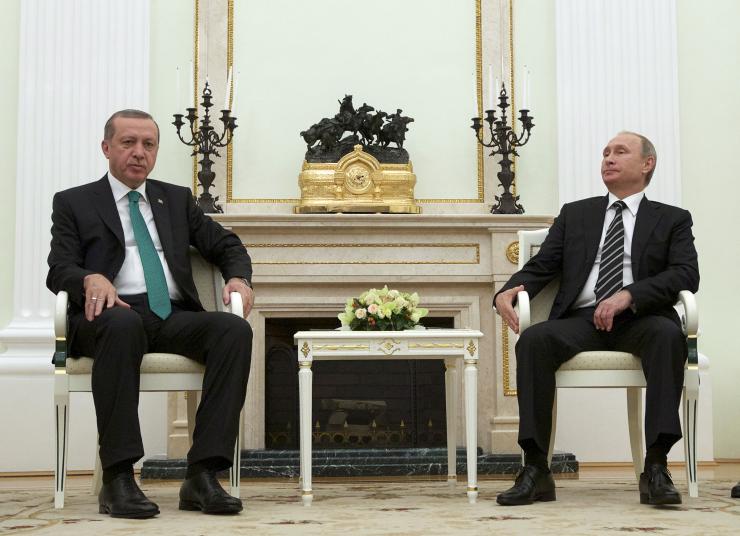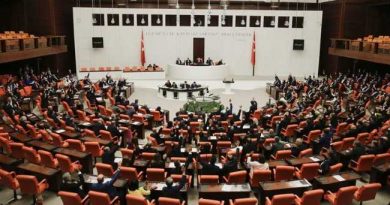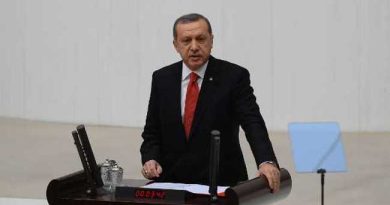Turkey First Country to Sign Convention to Prevent Violence Against Women
 Turkey became the first country Wednesday to sign a new European convention to prevent and combat violence against women, including crimes based on custom, religion, tradition or “honor.”
Turkey became the first country Wednesday to sign a new European convention to prevent and combat violence against women, including crimes based on custom, religion, tradition or “honor.”
“Not a day goes by in Turkey without news in the paper about women who have been subjected to violence. Now Turkey wants to be known in the world as a country that has championed the cause of combating violence against women,” said Feride Acar, who negotiated the convention on behalf of the Turkish government over the past two years.
Turkey made a special effort to finalize the text during its rotating term presidency of the Council of Europe, placing time pressure on member countries so the convention could be opened for signatures during the council’s ministerial meeting in Istanbul, when it handed the term presidency to Ukraine.
Turkish Foreign Minister Ahmet Davutoğlu signed the convention Wednesday, followed by representatives of 12 other countries.
“We actively participated in the drafting of the convention and provided strong support for its adoption. We hope this convention will function as a major instrument in this important area in Europe and globally,” Davutoğlu said. “Turkey is ready to do all [necessary] work to stop violence against women.”
Reaching a consensus proved difficult as many countries expressed resistance to the far-reaching provisions of the convention, but Turkey adopted a negotiation position based on international standards, Acar told the Hürriyet Daily News in an interview.
“We did not hide behind any cultural, economic or political pretexts and we resisted those who wanted to water down the stipulations,” she added.
The convention is revolutionary in the sense that it accepts violence against women as a human-rights violation, according to Acar. “This is very important, because violence against women will no longer be seen as a social problem. This will strengthen women’s demands for access to judicial recourse as well as protection,” she said.
Also important is the fact that the convention has endorsed a wide-ranging definition of “violence,” Acar added.
“Violence is not only physical. It can be economic or psychological; stalking is, for instance, a type of violence,” she said. The convention also includes violence against immigrant women, a measure that was resisted by some countries.
The convention covers what are called “the 4 Ps”: prevention, protection, prosecution and policy.
“The fourth P is especially important for Turkey, since we lack an integrated policy on gender equality. This convention will be known as the Istanbul convention and that way Turkey will be known as a country championing the cause of combating violence against women,” Acar told the Daily News.
“Just as we endorsed a zero-tolerance policy on preventing torture, we need to endorse zero tolerance on violence against women. In this sense, this convention will be a new driving force for Turkish domestic efforts,” she said. “Because we really need a mentality change, especially as far as implementation is concerned. All the judges, prosecutors, police and health officials will have to be trained. And for that Turkey needs to ratify the convention as soon as possible to set a good example as well.”
Most of the legal requirements of the convention are already met within Turkish legislation, Davutoğlu said, adding that Turkey is also committed to overcoming any problems that may arise during the implementation process.
The convention sets out standards for member states to act with integrated policies to tackle gender-based violent crimes and promote international cooperation. As member states of the council ratify the treaty, they become obliged to take legislative or other measures to ensure that acts such as domestic violence, violence in public places, sexual harassment, forced marriage, “honor” crimes, rape and genital mutilation are criminalized.
Thus far 13 countries – Austria, Finland, France, Germany, Greece, Iceland, Luxembourg, Montenegro, Portugal, Slovakia, Spain and Sweden, in addition to Turkey – have signed the convention.
The convention also envisions member states adding topics of gender equality, combating violence against women and mutual respect to their educational curriculum.
The treaty defines “domestic violence” as all acts of physical, sexual, psychological or economic violence that occur within a family or domestic unit or between former or current spouses or partners, whether or not the perpetrator shares or has shared the same residence with the victim.
A supervision mechanism will be set up to monitor the implementation of the treaty by signatory countries.
May 11, 2011
SOURCE: HURRIYET DAILY NEWS





